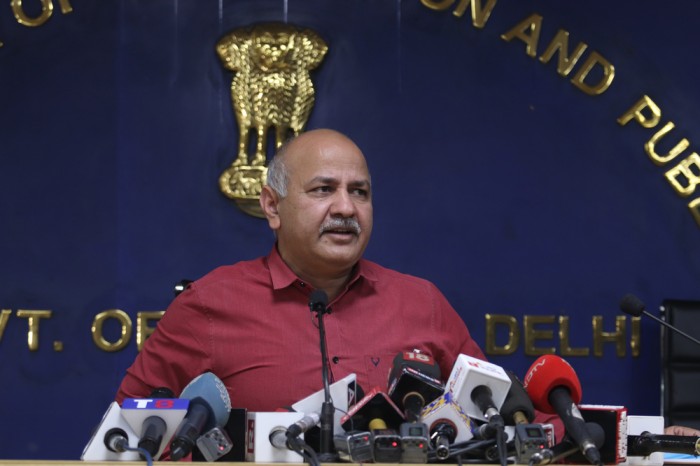Delegation from Nepal on a three-day visit to Delhi Government schools; surveys several school activities


A delegation of 30 school principals, vice principals and teachers from Nepal are on a three-day visit to Delhi government schools, said the Directorate of Education (DoE). The educators from Nepal's Municipality of Tilottama surveyed several activities in the schools, including the 'Deshbhakti', International Baccalaureate (IB), mindset curriculums and other activities associated with art, the DoE added.
One of the members of the delegation, Shyam Lal Kharel said, "We are introducing new initiatives to bring changes in our schools. Delhi education model was the first we could think of when we were looking for best practices to be implemented in our schools. We're curious to learn from the education model of Delhi and understand the ground-level implementation process of unique curricula."
Deputy Chief Minister Manish Sisodia said the motive of the Delhi government is to "establish an educated nation" that can efficiently deal with the "issues of poverty, unemployment, and inequality".
Sisodia further added, “As a government, our motto is to establish an educated nation that can efficiently deal with the issues of poverty, unemployment, and inequality. Only education is the solution to all these issues." By improving school infrastructure and introducing new curriculums, the Delhi government aims to provide new opportunities to students and help them grow as responsible citizens, he further stated."This goal of the government is being achieved successfully with the efforts of teachers who are provided fine training for their professional enrichment. On the other hand, our children are also learning to face challenges and focus on finding solutions for them," he said.
The delegation on Wednesday, attended two schools and interacted with the teachers and students and also will be visiting more government schools in Delhi. They also attended curriculum-specific classes including Happiness Class, Entrepreneurship and 'Deshbhakti' class to understand the concept of mindset curricula and how it can play an important role in the holistic development of children.